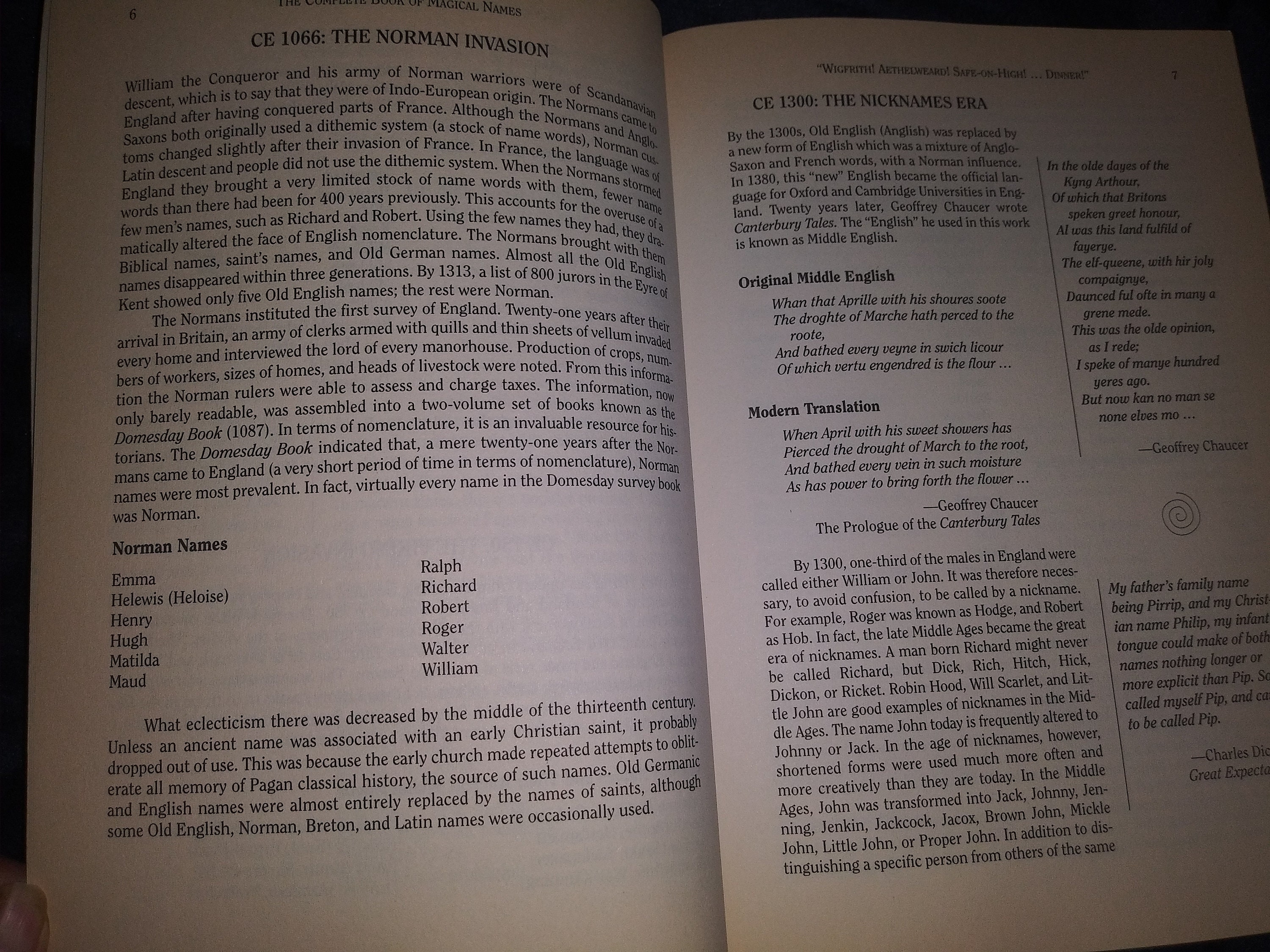

abracadabra An incantation or magical incantation any meaningless magic formula Nonsense, gibberish. They also use magic to say that something involves magic or is created by magic. To get a little bit of this magical combination of determination and foresight, we asked them to give us the best career advice they`ve ever received. Today, the term is used figuratively to describe something that has a magical “transportation” effect, such as drugs, or as in the following quote, a good book.
#Magical names dictionary driver#
The stories tell of legendary characters who possessed magical silk carpets that could be ordered to take a driver wherever he wanted. Magic carpet A means of transport that withstands conventional constraints such as gravity, space or time a way to reach every place imaginable. Magic and magic can also be used to say that something is wonderful and exciting. All this, I admit, is the fever of the mind – a waking dream – an illusion for which hypnotism or magic is only frivolity. (1853), which later acquired a more general meaning of “time of persecution” and is therefore treated by OED as a separate keyword. Others are invented later, but refer to this period, perhaps more specifically the witch hunt n.
#Magical names dictionary trial#
You will also notice, if you look at the section at the end of the entry devoted to compound words, that many of them date back to this period of increased fear of witches, including the witch`s cake (first recorded in 1616), the witch`s castle (1682), the witch stamp (1624), the witch`s meeting (1693) and the witch trial (1694). Here too, the note provides the historical context in which this meaning is to be understood. The first edition of the OED treated this as part of its meaning “women practitioners of magic or witchcraft”, but it seemed pronounced enough to deserve to be treated as a separate meaning. The same is true (to a lesser extent) for Sinn 1b(b), which deals with a particular type of witch namely, those associated with the period of growing fear of witchcraft in the late Middle Ages and early modern times that led to witch trials, such as those at Pendle in Lancashire in 1612 and salem, Massachusetts in 1692-3. and provides the context in which the basic definition works. However, the “note” in question is a miniature essay that covers, among other things, the history of belief in magic and magical power, how the witch has been associated with women in particular, and popular depictions of witches, all of which are important for understanding how the word was and continues to be. However, after some discussion, we decided to merge the two: the grammatical distinction between Wicca and Wicce in Old English is a different topic from how the witch was used at least from the Middle English period to refer to women more often than men, and we decided that it would be more useful to tell the story of the word in one place than in two. For this reason – and because the witch has been used much more often for hundreds of years to refer to a woman as a man, meaning that examples of witches referring to a man appeared as another meaning – the first edition of the OED decided to represent the meanings of “masculine” and “feminine” as two different keywords. In Old English, the word appeared in two forms: wicca (pronounced something like “witch-ah”), which refers to a man who practices witchcraft or magic, and wicce (pronounced something like “witch-eh”) refers to a woman who practices witchcraft or magic. Nobel Prize-winning psychologist Dan Kahneman said it was the “most important cognitive bias” and the first thing he would change in people if he had a magic wand. However, the appearance of Sens 3a (“as a concept of abuse or contempt for a woman”) in the fifteenth century strongly suggests that witches were considered women at that time, if not earlier, and the appearance of connections such as “he-witch” and “man-witch” around 1600 suggests that it was necessary at that time to clarify that a particular witch was more masculine than feminine.

Although, as we have seen, the Old English word wicce referred to a woman practicing magic, we don`t have enough evidence to say whether or not people were talking about a female Wicce more often than a male Wicca. This was especially the case when looking at how meaning 1a became so closely associated with women. The fact that meaning 1b(b) has been so productive when it comes to connections is a good argument for its treatment as a separate meaning, and it shows how important it is to think of individual senses and lemmas not as isolated units of meaning, but as parts of a whole that influence and are influenced by each other.


 0 kommentar(er)
0 kommentar(er)
